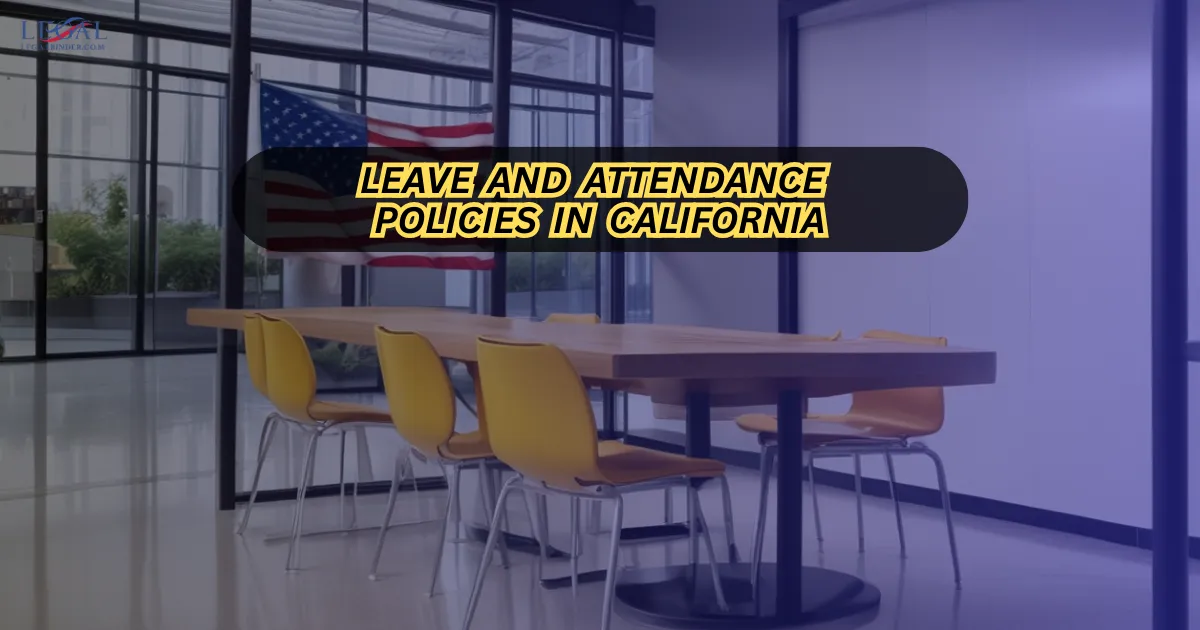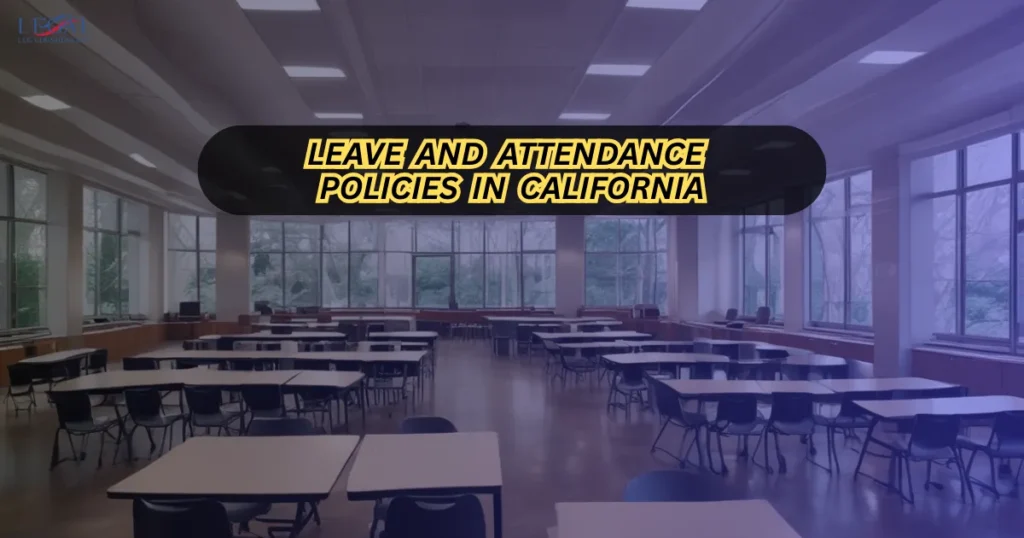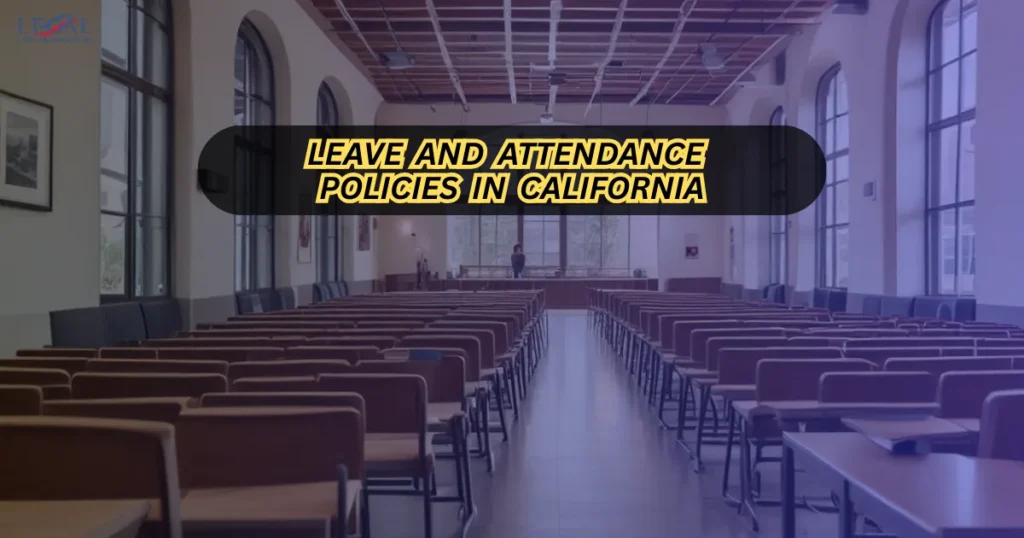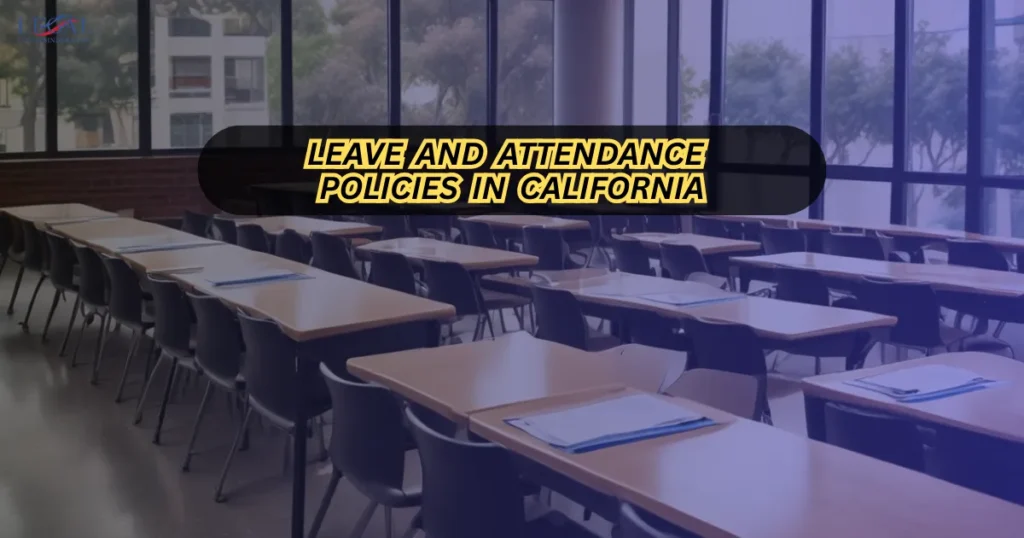Physical Address
304 North Cardinal St.
Dorchester Center, MA 02124
Physical Address
304 North Cardinal St.
Dorchester Center, MA 02124

Managing Leave and Attendance Policies in California is more than a compliance requirement—it’s about balancing fairness, compassion, and productivity in the workplace. If you’ve ever felt the stress of juggling employee absences, unexpected sick leave, or requests for extended time off, you’re not alone. These challenges touch every business, large or small, and the way you handle them directly impacts both your team’s morale and your company’s bottom line.

This comprehensive guide breaks down everything you need to know about California’s leave and attendance laws in 2025. From state-mandated sick leave to family and medical leave rights, you’ll gain the tools to create policies that keep your workplace compliant and supportive. For additional compliance insights, visit our homepage.
California employers operate in one of the most employee-protective legal environments in the country. Clear leave and attendance policies not only reduce legal risks but also ensure that employees know their rights. Employers who fail to implement compliant policies risk penalties, lawsuits, and reputational harm.
Reference: California Department of Industrial Relations (DIR).
Source: California Paid Sick Leave.

While employees have extensive rights to leave, California also allows employers to set clear attendance expectations. Policies must strike a balance: encouraging punctuality while respecting protected absences.
Employers must avoid retaliating against employees who exercise their legal rights to leave. For details, see the California Civil Rights Department.
Ensure policies reflect FMLA, CFRA, PDL, and other relevant regulations.
Consider part-time, full-time, and remote employees when designing leave entitlements.
Supervisors should understand both the legal rules and the human side of leave requests.
Employees should sign acknowledgments confirming receipt and understanding of the rules.

At least 24 hours or 3 days annually, though some cities require more generous benefits.
You can only discipline for unprotected absences. Protected leave (such as sick leave or CFRA) cannot be penalized.
Both provide 12 weeks of job-protected leave, but CFRA covers more family relationships and is often broader than FMLA.
No. Vacation is not mandated by law, but once offered, it must be honored as earned wages.
Strong Leave and Attendance Policies in California protect your company, support your employees, and build a culture of trust. By aligning with state and federal laws, avoiding common mistakes, and training your team effectively, you create a workplace where employees feel secure and respected.
To explore more legal compliance resources, visit our homepage.